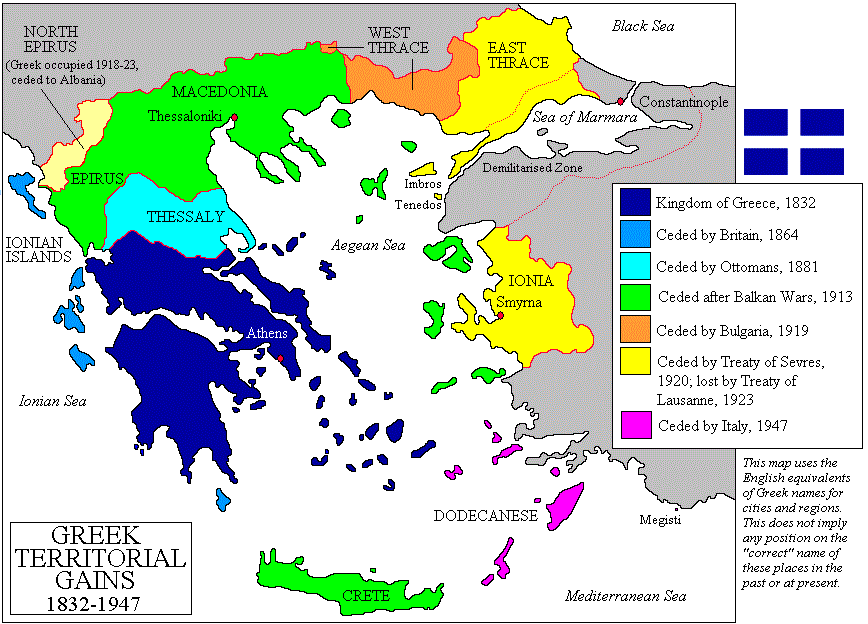Athens, Istanbul and Moscow: How the Turkish Shoot Down of a Russian Fighter Jet has Reignited Historic Greco-Turkish Animosity

Since the Greek Financial Crisis began in 2009, protests have become common in Athens, the Greek capital. However, since the downing of a Russian jet by the Turkish military on November 24 near the Syrian-Turkish border, the protests’ theme has shifted from economic woes to anti-Turkish passion. The Russo-Turkish confrontation has rekindled almost seven centuries of Greco-Turkish animosity.
The long history of Greco-Turkish tension is rooted in fall of the culturally and linguistically Greek Byzantine Empire in 1453, when Constantinople fell to the Turkish Ottoman Empire, who subsequently renamed Constantinople Istanbul and established it as their capital. The subsequent occupation of Anatolia and the Greek mainland by the Ottomans lasted for almost 400 years, during which the Greek population was subject to heavy taxes, political oppression, and conscription into the Janissary Corps of the Ottoman Army. Greek revolutionaries, supported by Russia, Britain, and France, freed themselves from Turkish rule in the Greek War of Independence (1821-1832), which established a small Greek state.
Nonetheless, Greek independence did not end the conflict: subsequent Greek governments launched campaigns to take territory from the Ottomans. The Greek leaders were adhering to the irredentist principle known as the Megali Idea, which sought to reclaim all territory inhabited by Greeks and reconstitute the borders of the Byzantine Empire within a modern Greek state.
As a result of the Berlin Conference (1878), ending the Great Eastern Crisis (1875-1878), Greece annexed some land. In the Greco-Turkish War of 1897, the Greeks lost small pieces of territory to the Turks, but then gained significant territories at the expense of the crumbling Ottoman Empire in the First Balkan War (1912-1913). After World War I (1914-1918), the Megali Idea was nearly realized: as per the Treaty of Sevres (1920), Greece annexed substantial amounts of land as part of the dismemberment of the Ottoman Empire, in cooperation with Britain, France, and Italy. These conflicts culminated in the Greco-Turkish War (1919-1922), during which the Greece suffered a humiliating defeat and lost the territory promised to it by Sevres in the Treaty of Lausanne (1923). This established the modern borders of Greece and Turkey (the successor state of the Ottoman Empire) in mainland Europe.
In the second half of the 20th century, Greco-Turkish hostility shifted from mainland Europe and Anatolia to Cyprus. Cyprus, under British administration since the Great Eastern Crisis, gained independence from Britain in 1960. Following Cypriot independence, the Greek government began pushing for Enosis, or union, between Cyprus and Greece. They used Cyprus’ demographics to justify this claim: Greeks, roughly 77% of the Cypriot population, greatly outnumbered Turks, approximately 18% of the population. Inter-ethnic clashes began in 1960, and escalated until a United Nations peacekeeping force was deployed in 1964. A decade later, the Greek government organized a coup against the Cypriot government, triggering a Turkish invasion (1974) and an eventual stalemate that resulted in a partitioned Cyprus. This uneasy settlement persists today.
Centuries of animosity explain the strong Greek reaction to the downing of the Russian jet. Many Greeks see Russia as a historic ally against the Turks, repeatedly intervening on behalf of the Greeks: for example, the defeat of the Ottoman Navy at the Battle of Navarino (1827) during the Greek War of Independence by the Russians, British, and French was pivotal. Moreover, the incursion of the Russian jet into Turkish airspace calls to mind the 2,244 Turkish intrusions into Greek airspace during 2014 (including some incursions into contested airspace), according to the Greek military.
These incursions are part of a 17-year history of “dogfights” between Greek and Turkish jets. Some of these confrontations have led to casualties. In 1996, a Greek Mirage 2000 shot down a Turkish F-16; the Turkish pilot died, while the co-pilot was rescued. The event was reportedly an accident. In 2006 Greek and Turkish F-16s collided, killing the Greek pilot. However, the intrusions haven’t usually led to violence: because both Greece and Turkey are North Atlantic Treaty Organization (NATO) members their responses to military provocation are limited. Nevertheless, given that Turkey responded to an incursion on its airspace(lasting 17 seconds according to a NATO official) by shooting down the Russian jet and killing its pilots, many Greeks now question the Greek military’s apparent tolerance of comparable incidents in its own airspace.
Both the Greek government and population have responded with shows of support for Moscow. Greek Foreign Minister Nikos Kotzias called Russian Foreign Minister Sergei Lavrov on November 25 to express Greek “solidarity” with Moscow. Meanwhile, protesters burned Turkish flags outside the Turkish Embassy in Athens. Panagiotis Lafazanis, leader of the far-left Popular Unity Party, attended the protests and announced, “This action of Turkey was totally unacceptable, a clear act of war…an action which causes wider dangers in the area.”
For the United States (US), renewed tensions between Greece and Turkey (two NATO allies) and the development of stronger ties between Greece and Russia (an ally and a geostrategic adversary) provides a dilemma. Despite a request from Washington in September for Greece to deny Russia passage through its airspace in order to block Moscow’s operations in Syria, Greece has not complied. Many Greeks believe that the US is complicit in the downing of the Russian plane, especially since American President Barack Obama noted in a press conference in late November that Turkey has a right to defend its airspace. In Athens, some protesters have called for Greek withdrawal from NATO, and have burned the American flag alongside the Turkish one. Centuries-old Greco-Turkish tensions in which Moscow has traditionally aligned with Athens against Istanbul have been re-ignited by the Turkish shoot down of a Russian jet, which complicates the US’ relationship with Moscow, Athens, and Istanbul.